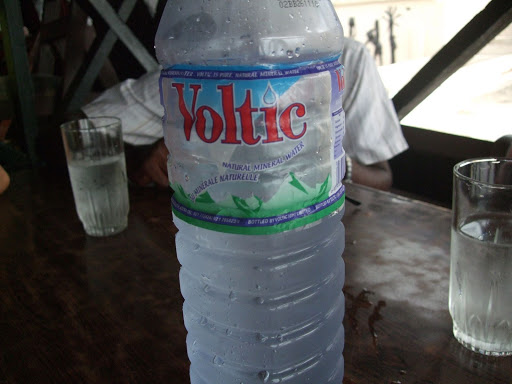The past three days have been filled to the brim with school, school-related activities, and socializing. We've been observing classes, doing a little teaching, lunching and dinnering with administrators and teachers, and have been thoroughly entertained by student cultural presentations (music, dancing, and drama) at both
Wesley Girls and
Mfantsipim.
Wesley Girls is considered the most prestigious and high-performing girls high school in Ghana. It is a boarding school, attracting girls from all over the country to receive a holistic education. The focus is not only on excellent academics, but on learning to become a well-rounded, self-sufficient, moral leader. Girls are given a high level of responsibility to maintain their dormitories, classrooms, and grounds. They do their own laundry and dishes (by hand) and assume a wide variety of student leadership positions. Almost all continue on to post-secondary education, either at
Ghana's well-respected universities or abroad.
Teachers move from room to room, rather than students moving. Females around the age of your mother are referred to as "Auntie", so when I enter a classroom I now know the girls will stand and politely say "Good morning, Auntie Sara". (This level of informality was used only because I was a visitor. A regular teacher would always be referred to by their surname.)
Our host teachers have continually emphasized to us that they use primarily the lecture method due to the fact that they have very large class sizes and very few teaching materials. I actually would not categorize what I have seen so far as lecture. I would describe it as teacher-led, interactive discussion. Students have typically completed an assigned textbook reading prior to class. Teachers have a prepared list of key points that they use as a reference, and students are expected to record those key points in their notebooks. As there are few photocopies or handouts, their notebooks become a critical study tool. Each classroom has desks, chairs, chalkboard, and chalk, but not much more.
There is a high level of student participation. When students respond, they are expected to stand, rephrase the question or prompt, and answer in the form of a complete thought using standard English. The level of academic rigor and evidence of critical thinking exhibited through oral classroom activities far exceeds that which I have experienced in U.S. high schools.
The
Wesley Girls alumni organization ("Old Girls") recently purchased laptop computers for the teaching staff. The only use of technology for instruction that I have noted was in the case of one teacher who had his lecture notes on his laptop rather than in a thick notebook. Wesley does have a Computer Lab with Internet access. Girls are learning basic keyboarding and Internet search skills as well as introductory Microsoft Word, Excel, and PowerPoint. Both Raphael and Michael have indicated that they would very much like to have projectors for their classrooms.
In Kate's English class students were recording ideas on large pieces of paper around the classroom, "pairing and sharing", and having a lively discussion about culture, positive and negative elements of Ghanaian culture, and cultural blending.
The heat is definitely an issue in the classroom. Even with open windows and doors and here in
Cape Coast, a breeze off the ocean, classrooms can be oppressively hot. The male teachers continually mop themselves with handkerchiefs and the girls fan.
The students that attend
Wesley Girls and
Mfantsipim are Ghana's "best and brightest". They are intelligent, confident, articulate, and deliberately being groomed to become Ghana's future leaders. Economic development and globalization are bringing increased opportunities to Ghana. It seems likely that they will stay in Ghana, or "go outside", as they call it, for educational opportunities in Europe or the U.S., with the intent of returning to live, work and raise families in Ghana.
We've had many home-cooked lunches and dinners this week (including a very fun evening with host teacher Michael, his wife Golda, and children Theresa, Gilbert, and Connie at their flat) and have now tasted quite a variety of Ghanaian dishes: red-red,
plantains, yam (a different variety than we have in the U.S.),
cassava, groundnut soup, light soup,
jollof rice, beans (black-eyed peas),
fufu and
banku, to name a few. Fufu is the dish Ghanaians say they miss most when they are outside. It's funny to hear our host teachers talk about the food they tried while in the U.S. "Too many leaves" and "too sweet" are the most common impressions, inevitably offered with a big smile and a hearty laugh.










